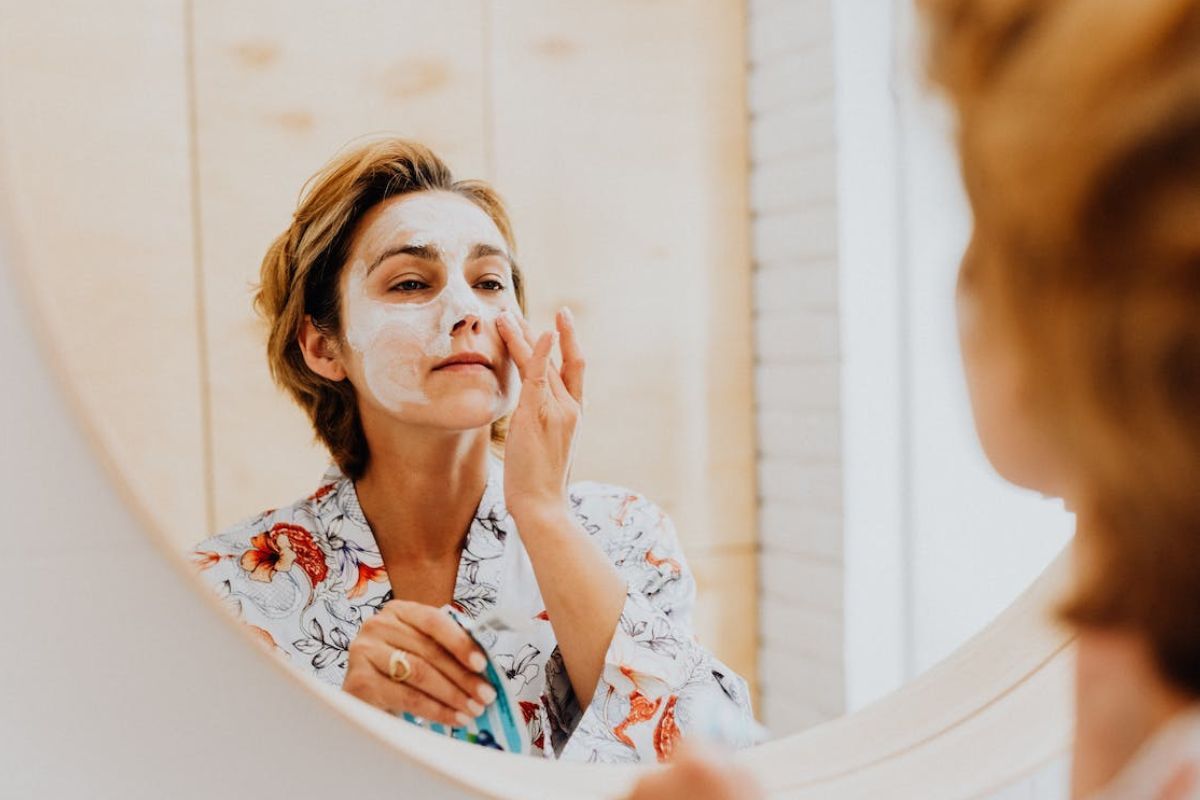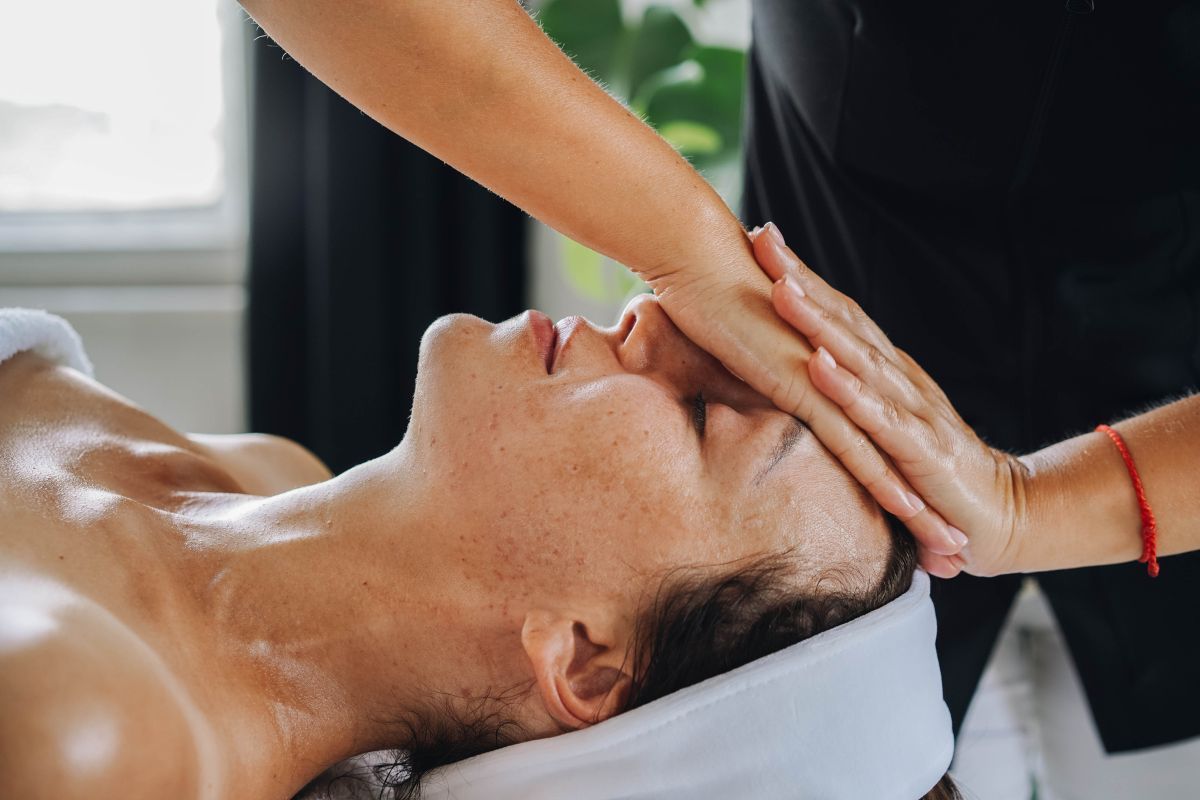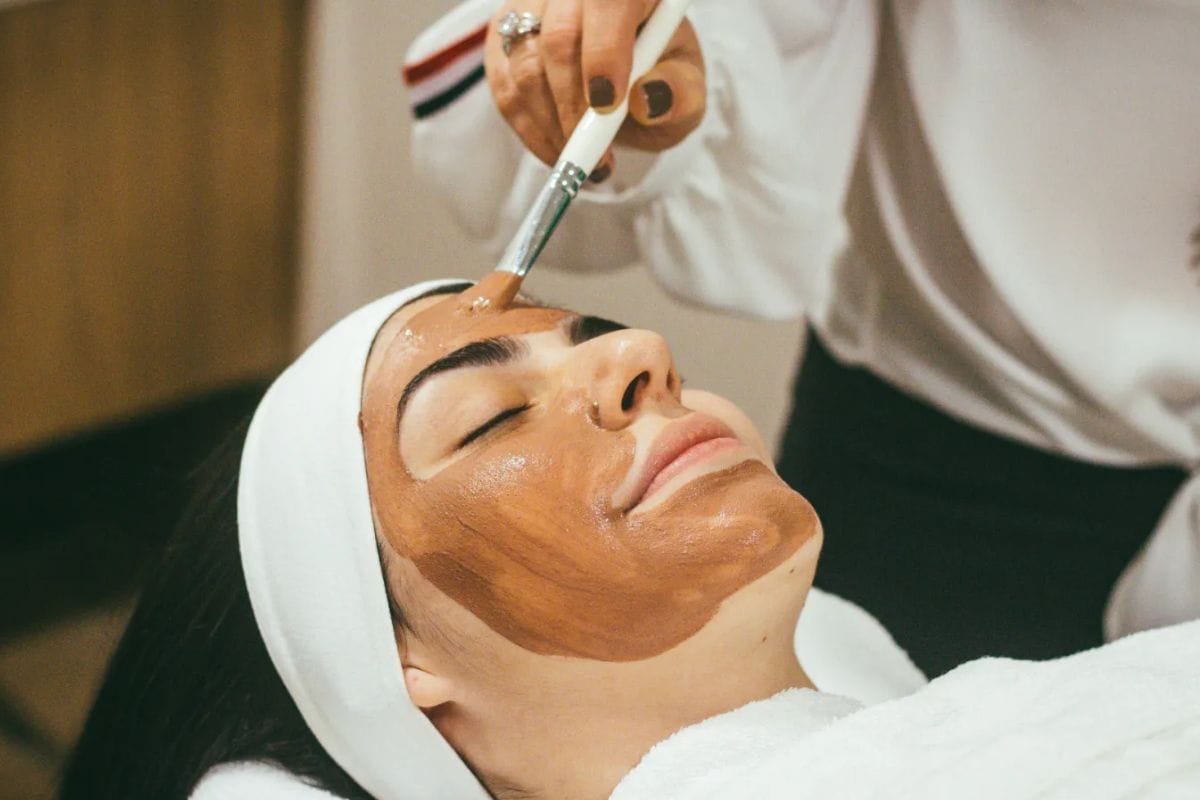As summer draws to a close, your skin might be showing signs of the season’s impact—whether from extended sun exposure, beach days, pool dips, or the relentless heat. The summer sun can weaken your skin barrier, leaving it dehydrated, irritated, and more prone to damage. Chlorine and saltwater from pools and beaches can further strip your skin of its natural oils, leading to dryness and dullness. With these cumulative effects, it is essential to give your skin some extra TLC as we transition into the cooler months.
Discover how to rejuvenate and repair your skin with these top post-summer care tips designed to restore balance, enhance hydration, and protect your skin’s natural radiance.
Hydrate Deeply

Why is it important:
Summer's intense heat and sun, along with swimming in chlorinated or saltwater, can severely dehydrate your skin, causing dryness, tightness, and flakiness. To restore moisture balance and maintain a healthy, radiant complexion, proper hydration is essential.
How to hydrate deeply:
- Switch to a richer moisturizer
Choose a moisturizer with hydrating ingredients like hyaluronic acid, glycerin, and ceramides. Hyaluronic acid attracts moisture, glycerin pulls water from the environment, and ceramides strengthen the skin barrier to reduce water loss. Opt for a richer cream for very dry skin, or a lightweight gel for oily or combination skin.
- Incorporate a hydrating serum
Hydrating serums, with their high concentration of moisturizing ingredients, penetrate deeper into the skin than regular moisturizers. Applying them after cleansing and before moisturizing ensures better absorption, helping combat deeper dehydration while boosting your moisturizer’s overall effectiveness.
- Use hydrating masks
Sheet masks, overnight masks, and hydrating clay masks offer deep hydration for dry skin. Choose masks with aloe vera to soothe and reduce redness, vitamin E for antioxidant protection, and hyaluronic acid to attract and retain moisture for optimal hydration.
- Apply moisturizer on damp skin
For optimal hydration, apply your moisturizer to slightly damp skin to lock in the moisture already present and enhance the overall hydrating effect. After cleansing and applying your serum, gently pat your skin dry, leaving it slightly damp before applying your moisturizer.
- Hydrate from within
Proper skin hydration is essential, and drinking at least 8 glasses of water daily is key, especially if you are active or live in a hot climate. Adding hydrating foods like watermelon, cucumbers, and oranges to your diet also helps keep skin moisturized from within.
- Avoid hot showers
Hot water can deplete your skin's natural oils, resulting in dryness. To avoid this, choose lukewarm water for showering or washing your face. After your shower, gently pat your skin dry with a towel and promptly apply a moisturizer to help retain moisture.
Exfoliate Gently
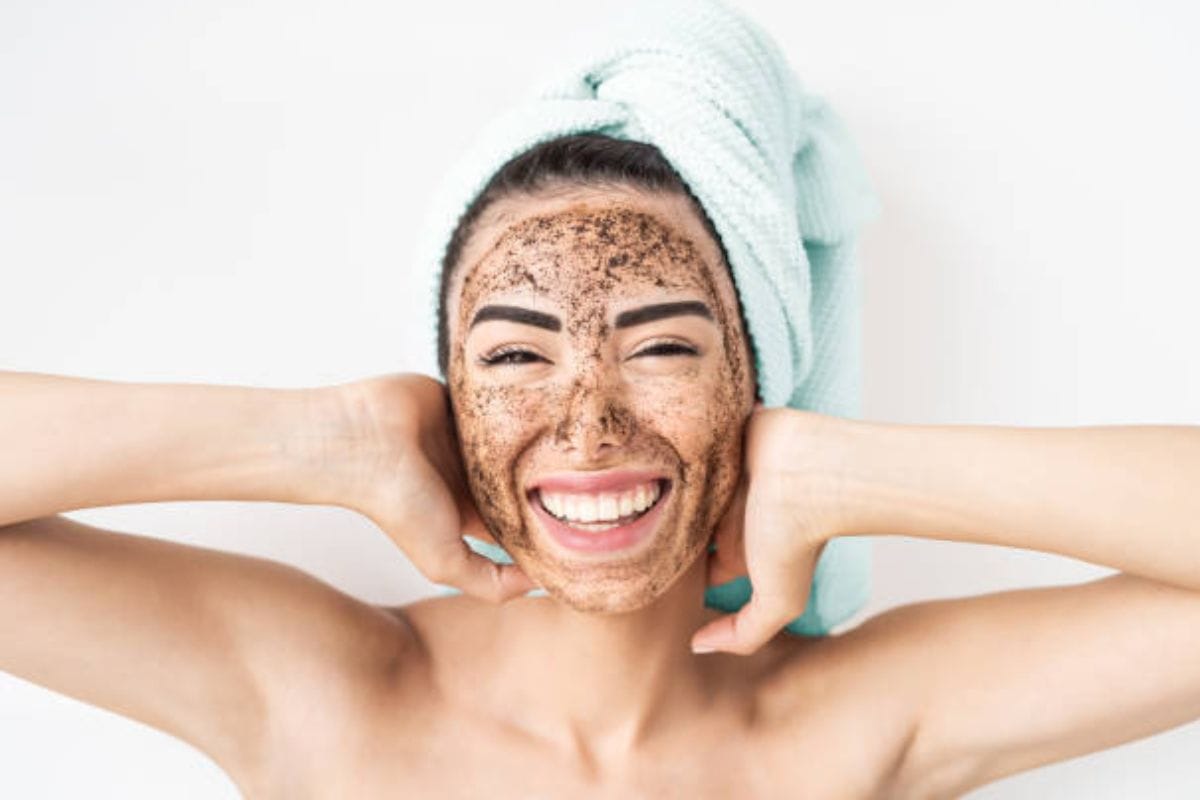
Why is it important:
Exfoliation is crucial for healthy skin, especially post-summer. Sun, sweat, chlorine, and saltwater can cause dead skin cell buildup, making skin look dull and uneven while clogging pores. Gentle exfoliation removes these cells, revealing a fresher, more radiant complexion.
How to exfoliate gently:
- Choose the right exfoliant
Chemical exfoliants, like water-soluble AHAs (glycolic, lactic acid) and oil-soluble BHAs (salicylic acid), cater to different skin types. AHAs suit normal to dry skin, while BHAs target oily, acne-prone skin. Physical exfoliants, including scrubs or brushes, should be used gently to avoid causing microtears.
- Frequency
For most skin types, exfoliating 1-2 times per week is sufficient. Over-exfoliating can strip the skin of its natural oils, leading to irritation and sensitivity. Adjust the frequency based on your skin’s response and needs.
- Application technique
Apply chemical exfoliants after cleansing and before moisturizing, following product instructions, and leave them on without rinsing. For physical exfoliants like scrubs, gently massage a small amount on damp skin in circular motions, then rinse with lukewarm water and continue your skincare routine.
- Post-exfoliation care
After exfoliating, your skin becomes more sensitive, so it's crucial to use a hydrating moisturizer with ingredients like hyaluronic acid, ceramides, or squalane. Apply sunscreen with at least SPF 30 to protect against UV damage, as your skin may be more vulnerable to sun exposure.
- Choosing products
Opt for exfoliants with well-formulated, skin-friendly ingredients. For chemical exfoliants, ensure the concentration of acids is suitable for your skin type and concerns. For physical exfoliants, select products with fine, smooth particles to avoid excessive abrasion.
Soothe Irritation
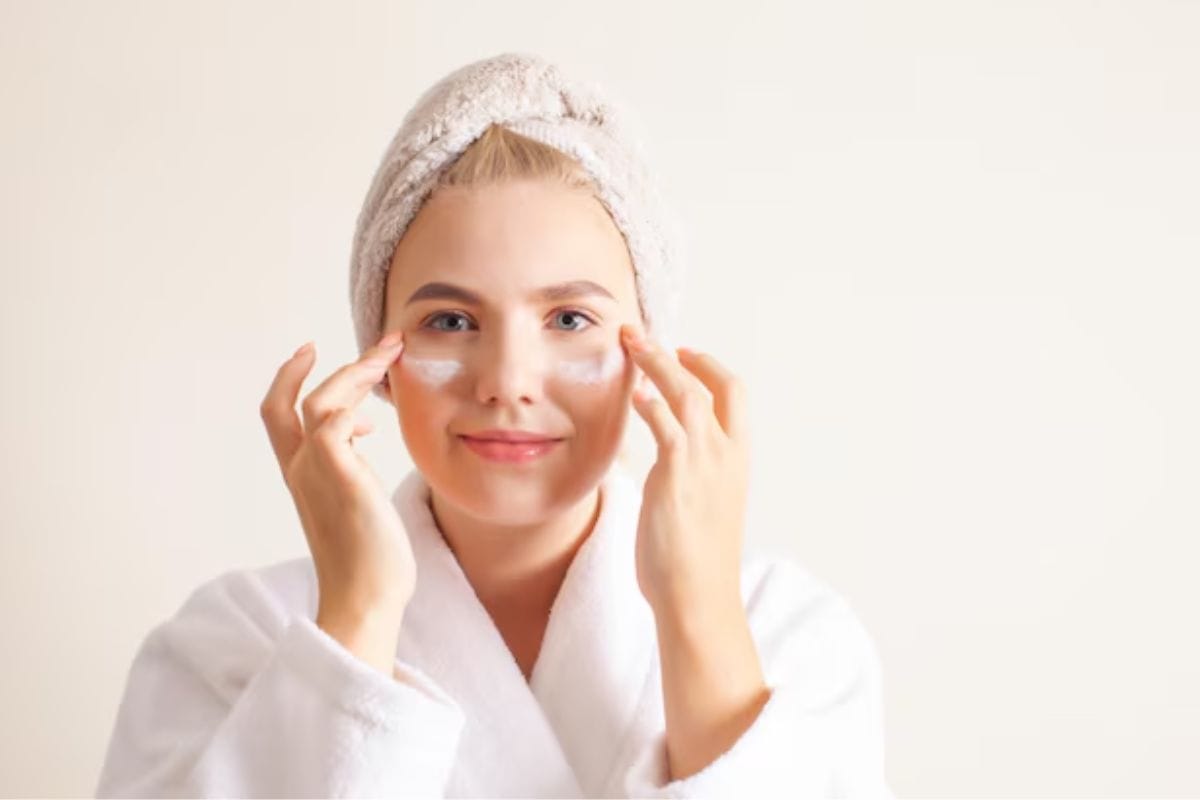
Why is it important:
Summer often means increased sun exposure, which can lead to skin irritation and sensitivity. Prolonged sun exposure can cause redness, inflammation, and dryness, exacerbating any existing skin conditions or causing new issues. Additionally, the combination of chlorine from swimming pools and salt from the sea can strip the skin of its natural oils, making it more prone to irritation.
How to soothe irritation:
- Use aloe vera
Aloe vera, rich in vitamins, minerals, and antioxidants, soothes and heals the skin while reducing redness and discomfort due to its anti-inflammatory properties. Apply pure aloe vera gel directly to affected areas or mix it into your daily moisturizer. For extra relief, refrigerate the gel before use.
- Incorporate chamomile
Chamomile's anti-inflammatory and calming properties soothe irritated skin, reducing redness and swelling while its antioxidants protect against further damage. Use chamomile-infused skincare products like creams, masks, or serums, or apply cooled chamomile tea bags as a gentle compress for 10-15 minutes.
- Opt for colloidal oatmeal
Colloidal oatmeal soothes irritated skin by restoring its barrier, alleviating itching and inflammation, and providing moisture. For relief, use bath products or moisturizers with colloidal oatmeal, or add it to a lukewarm bath and soak for 15-20 minutes.
- Avoid harsh ingredients
Avoid products with alcohol, fragrances, or harsh chemicals, as they can worsen irritation and dryness. Opt for fragrance-free, sensitive-skin-friendly items with gentle, hydrating ingredients to soothe rather than irritate the skin.
- Apply cool compresses
Cool compresses offer quick relief for sunburn or irritated skin by reducing heat and inflammation. To use, soak a clean cloth in cool water, wring it out, and apply it to the affected area for 10-15 minutes, repeating several times a day as needed.
Repair Sun Damage
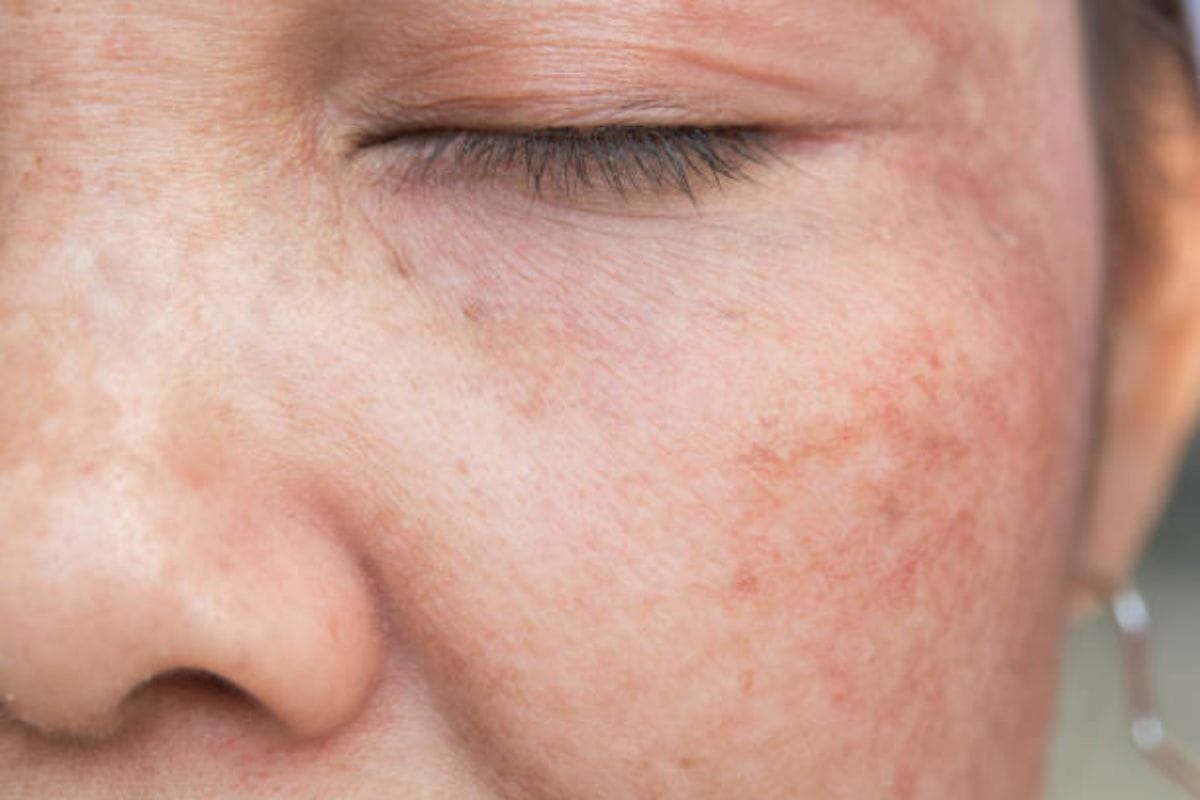
Why is it important:
Prolonged sun exposure, even with sunscreen, can cause lasting skin damage by breaking down collagen and elastin. This leads to dark spots, hyperpigmentation, fine lines, and uneven skin tone, potentially worsening over time and resulting in premature aging or deeper issues like melasma.
How to repair sun damage:
- Incorporate anti-oxidants
Antioxidants, like vitamin C, protect the skin from UV damage by fighting free radicals. Vitamin C brightens the skin, fades dark spots, and evens tone. Consistent use of vitamin C serums can reduce hyperpigmentation. Apply daily after cleansing and before moisturizing for a brighter complexion.
- Use niacinamide
Niacinamide, or vitamin B3, reduces dark spots, redness, and blotchiness while boosting skin elasticity and hydration. It strengthens the skin barrier and fades sun damage. Gentle enough for daily use, it works well with other ingredients and can be applied before moisturizing, morning and night.
- Consider spot treatments
For stubborn dark spots, use targeted treatments with higher concentrations of brightening agents like tranexamic acid, kojic acid, or arbutin. Apply these spot treatments to affected areas after your serum and before your moisturizer for best results.
Adjust Your Cleanser

Why is it important:
As summer turns to fall, your skin's oil production decreases with cooler weather, reducing the need for strong, astringent cleansers. Continuing to use them can strip natural oils, leading to dryness and irritation, so it's essential to switch to gentler products for balanced skin.
How to adjust your cleanser:
- Hydrating ingredients
Look for cleansers with ingredients like glycerin, hyaluronic acid, or aloe vera, which help to lock in moisture and maintain your skin’s natural barrier. These ingredients cleanse without stripping away essential oils, making your skin feel softer and more hydrated.
- Avoid sulfates and harsh soaps
Traditional foaming cleansers with sulfates can be too harsh post-summer. Choose sulfate-free options that are more nourishing. Cream or gel-based cleansers are typically gentler and effective for removing impurities while maintaining skin hydration.
- Balance oil production
Even though you may be using a gentler cleanser, it’s still important to clean out clogged pores from sunscreen, sweat, and oils that built up over the summer. Opt for cleansers containing mild acids like salicylic acid if you are prone to acne, but ensure they’re balanced with hydrating ingredients to prevent over-drying.
Rebalance Your Skin

Why is it important:
As summer turns to fall, temperature and humidity shifts can affect your skin's oil production and balance. Higher summer humidity often causes oily skin and clogged pores, while cooler weather can dry out the skin, leading to a mix of oily and dry patches or a feeling of tightness.
How to rebalance your skin:
- Choose the right toner
Choose an alcohol-free toner to restore your skin's pH balance and remove residual impurities after cleansing. Opt for soothing ingredients like witch hazel, chamomile, or rose water to calm and balance oil production. Apply by patting with a cotton pad or spraying directly, avoiding over-application to prevent irritation.
- Incorporate oil-balancing treatments
Oil-balancing treatments maintain even skin texture and prevent excess oil or dryness. Use products with salicylic acid or tea tree oil to control oil and breakouts, and niacinamide for dry skin to balance without drying. Apply after toner and before moisturizer, following product instructions to avoid sensitivity.
- Monitor and adjust
Regularly assess your skin's response to seasonal changes and adjust your skincare routine accordingly. Monitor for increased oiliness or dryness and tweak your toner or moisturizer as needed. For persistent issues, consult a dermatologist for personalized advice and adjustments.
Nourish Your Skin from Within

Why is it important:
The health and appearance of your skin are shaped by your diet and hydration. While moisturizers and serums help, true hydration begins with a nutrient-rich diet and adequate fluid intake. Proper nutrition and hydration enhance your skin's repair, regeneration, and moisture retention, leading to a radiant complexion.
How to nourish your skin from within:
- Drink plenty of water
Water is essential for skin hydration, keeping it plump and elastic. Dehydration can cause dryness and dullness. Aim for at least 8 glasses (2 liters) of water daily, adjusting based on activity and climate. Use a reusable bottle and infuse water with fruits or consume water-rich foods for added hydration.
- Incorporate anti-oxidants rich foods
Antioxidants combat free radicals that damage skin cells and accelerate aging. A diet rich in antioxidants, including berries (blueberries, strawberries, raspberries) and nuts/seeds (almonds, walnuts, chia seeds), supports skin health by neutralizing oxidative stress and reducing inflammation, while aiding in collagen production and maintaining moisture and elasticity.
- Include vitamin-rich foods
Vitamins A, C, and E are vital for skin health. Vitamin A, found in sweet potatoes and carrots, supports skin repair. Vitamin C, in citrus fruits and bell peppers, boosts collagen and healing. Vitamin E, present in nuts and leafy greens, protects skin cells from damage.
- Consume healthy fats
Healthy fats are crucial for skin health, aiding in moisture retention, elasticity, and reducing inflammation. Key sources include fatty fish like salmon, avocados rich in monounsaturated fats and vitamins E and C, and extra virgin olive oil, which provides essential fats and antioxidants for soft, resilient skin.
Also Read:
